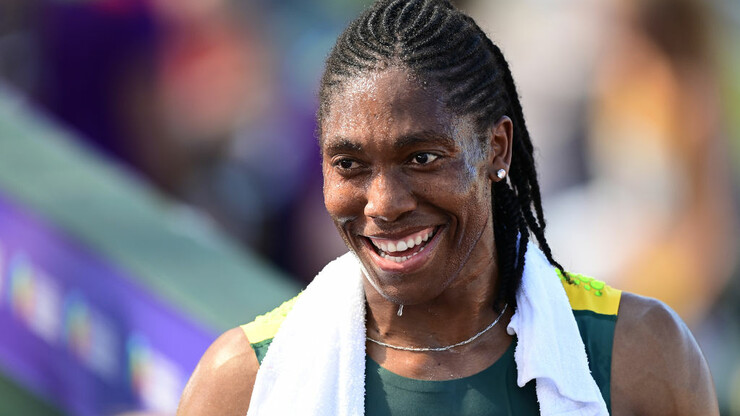Double Olympic 800m champion Caster Semenya has achieved a significant victory in her ongoing legal battle against World Athletics.
On Tuesday, the European Court of Human Rights ruled in Semenya’s favour, allowing her to challenge whether her rights had been violated by the requirement for women with high testosterone levels to undergo hormone reduction therapy.
Semenya, who is classified as having “differences in sexual development (DSD),” has steadfastly refused to comply with World Athletics’ mandate to lower her testosterone levels through medication.
Despite losing previous appeals at the Court of Arbitration for Sport and Switzerland’s supreme court, Semenya persisted and brought her case to the European Court of Human Rights, citing insufficient safeguards in Switzerland for examining her complaints effectively.
While the court’s ruling is primarily symbolic and does not directly challenge World Athletics’ regulations or enable Semenya’s return to the 800m event, it represents a significant development in her fight for equality in sports.
In response to the ruling, World Athletics expressed its intention to collaborate with the Swiss government regarding the next steps and consider referring the case to the ECHR Grand Chamber for a final decision.
The federation continues to maintain that the DSD regulations are necessary to ensure fair competition in the female category, as affirmed by previous assessments of the evidence by the Court of Arbitration for Sport and the Swiss Federal Tribunal.
World Athletics introduced the DSD regulations to establish a level playing field in events ranging from 400m to one mile.
As a result of these regulations, Semenya was compelled to transition to the 5,000m distance, where she did not advance to the final in the 2019 world championships.
In March of this year, the federation further amended the rules, requiring DSD athletes to lower their blood testosterone levels to below 2.5 nanomoles per litre and maintain this threshold for two years.
While Semenya’s victory does not immediately alter her circumstances, it signifies an ongoing struggle for equality and fairness in sports, prompting further dialogue and examination of the rights and treatment of athletes with DSD.





























